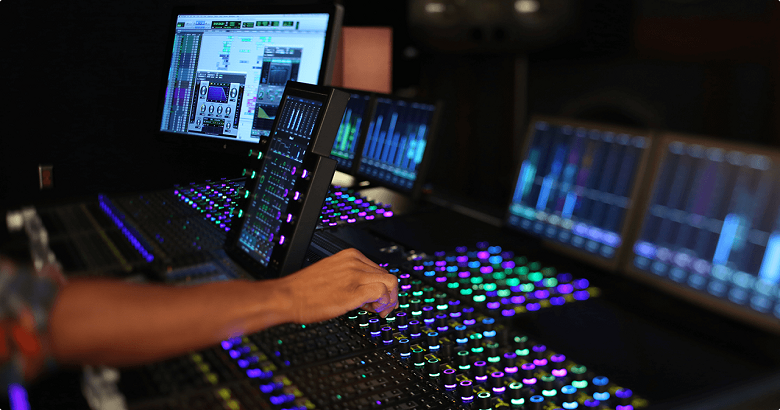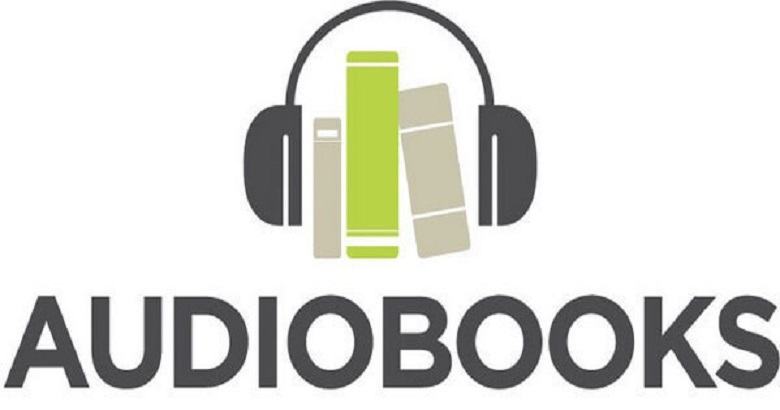Converting your book into an audiobook is a great way to reach new audiences, but many authors wonder about the associated costs. The book to audio converter production process involves professional narration, audio editing/engineering, distribution through platforms like Audible, and more. Let’s examine all the factors that determine audiobook conversion pricing.
Book Length & Production Time
As mentioned, audiobook production is typically priced per hour. Generally, 250 words equals about 1 minute of finished audio. Longer books simply require more hours in the recording studio.
- A 10,000-word short story could be around 1-2 hours
- A 40,000-50,000 word novel is usually 6-10 hours
- Epic 100,000+ word books might run 15-20+ hours
The recording, editing, and overall production time increases substantially with length. Expect to pay the narrator and studio for all booked hours, whether actively recording or not. Accurate timing estimates help budget appropriately.
Narrator Experience & Rates
Like any professionals, experienced voice actors charge premium rates:
- Beginner rates start around $150-250/hour
- Mid-career narrators command $250-350/hour
- Highly prolific veterans can earn $400-600+/hour
- Unionized narrators (SAG-AFTRA) start at $350/hour minimum
Busy narrators may have waiting lists, so securing the right voice can take patience. Avoid underestimating the importance of a skilled performer.
Production Services & Studio Rates

Beyond narration, editing, mixing, and distributing all require time and talent:
- Audio engineering/post-production varies by studio but averages $50-150/hour
- Music and SFX creation starts at $100-300+ depending on complexity/originality
- Graphic design for covers, marketing assets usually $100-500 minimum
- Promotional services like ads launch support potentially $ 1,000 more
Self-Narration Savings & Tradeoffs
Only you can decide if narrating yourself is worth the effort and opportunity cost of your time:
- Equipment investment of $200-500 for necessary audio gear
- Soundproofing a recording space costs a few hundred dollars, at least
- Self-narration saves $1,000s in voice actor fees but requires 100s of hours
- Post-production help is still needed at $15-50/hour edited
- You miss the objective perspective an outside voice brings
Royalty Models & Revenue Sharing
Most publishers offer two primary structures:
- Work for hire – You pay costs upfront and receive a 15-25% ongoing royalty share
- Revenue share – Initial costs paid back from a portion of future earnings until recouped, then a higher 50-70% split after
- Self-publishing on platforms usually nets the biggest 60-75% royalty but requires full funding for production
Budget Contingencies & The Total Cost

With all these factors in mind, here are typical overall audiobook production cost ranges:
- 1-2 hour short works $300-800 self-narrated, $800-1,500 professional
- 6-10 hour novel $1,200-3,000 professional production
- 15-20 hour epic novels $3,000-6,000 for full studio treatment
Budgeting 10-20% higher than estimates is wise to allow for scope increases. Careful planning and contingency funds help ensure a quality audio adaptation within your means.
Platform Distribution & Marketing Costs
Once production is complete, distribution and promotion are vital for sales success. Here are some associated expenses:
- Audible ACX Royalty Share Fees Range from $50 to $150, depending on book length and exclusive/non-exclusive term.
- Distribution to Other Platforms – Distributing via other stores like iTunes, Google Play, or Spotify often requires an additional $100-300 localization fee per store.
- Marketing & Advertising – Promoting the audio launch requires funds. Expect to spend:
- $500-1,000 on a basic email campaign and social promotion
- $1,000-3,000 for targeted Facebook/Instagram ads or podcast sponsorships
- $3,000+ for cross-platform campaign using many promotion channels
Without marketing support, even the best audiobook may go unnoticed. Proper promotion budgeting is essential.
Getting Grants & Subsidies
Some funding options can help offset costs:
- State and Local Arts Council Grants – Many provide $500-5,000 for worthy creative projects. Application timelines are often yearly.
- Publisher Subsidies—Larger houses may provide $1,000-3,000 advances to producers for whom they handle distribution. This arrangement requires signed contracts.
- Crowdfunding Campaigns—Authors have raised $2,000 – $10,000+ from fans Using Kickstarter, Indiegogo, etc., to fund audio conversions.
While competitive, grants can reduce expenses. Publishers may also see audio potential and invest accordingly.
Self-Publishing Pros & Cons
Indie production trades full control for funding pressure:
- Complete creative control over casting, production, and marketing with no middlemen
- Keep 85-90%+ royalties by self-publishing direct to platforms
- Handle all production, promotion, and ongoing costs yourself from start to finish
- Risk significantly more upfront capital without sales guarantees
- More grunt work managing distribution deals and tax/contract obligations yourself
Carefully weighing these factors is vital before choosing DIY over a subsidy deal. With proper planning, either path can lead to audiobook success.
Testing the Waters Before a Full Conversion
For authors new to audiobooks, trying a short excerpt conversion first is a lower-risk option:
- Convert just 1-2 sample chapters rather than the full book initially.
- Costs a few hundred dollars for 1-2 hours of production rather than thousands.
- Gets the content in front of listeners and gauges interest/demand.
- Can experiment with different narrators or production styles at low cost.
- Provides data on performance before investing big in a full conversion.
- Builds experience working with narrators, editors, and platforms.
If the sample performs well, it de-risks green-lighting the full audiobook project. But it avoids a big expense if the format isn’t a good fit.
Utilizing Hybrid Distribution Models
Rather than fully self-publishing or signing exclusively with one platform, consider hybrid options:
- Sign non-exclusive distribution through Audible/ACX and keep rights to sell directly.
- Get upfront funds/marketing support from a small press while maintaining other sales avenues.
- Crowdfund on Kickstarter, but sell the finished audiobook on your website, too.
- License audio exclusives to libraries/book clubs while selling commercially yourself.
Diversifying sales channels hedges risk and allows selling to different buyer segments. More sales opportunities can make costs more manageable.
Alternative Genres and Value-Adds
Branching beyond straight narrations opens format options:
- Cookbooks – pair recipes with instructional cooking audio modules.
- Children’s books – published enhanced with original music and characters.
- Graphic novels – released as full-cast audio dramas with sound effects.
- Nonfiction is produced as educational audio courses consumers pay monthly to access.
Adding production value through music and effects or making the audio interactive builds a premium product with the potential for higher pricing.
Ongoing Royalties Can Recoup Costs
While an upfront investment, successful audio conversions continue selling years through residual income:
- Average audiobook nets $1-5/sale, depending on length and popularity.
- Bestsellers have residual sales for 5-10+ years post-launch.
- Conversion pays for itself over the long tail through ongoing 15-25% royalties.
An audiobook need only sell 400-1,000 copies to recoup average production costs from royalties received. Even small sales sustainably earn authors’ income.
Sums Up
A book to audio converter format requires an investment, it can significantly boost sales revenues and expand the audience reached over time. Most authors can recoup their initial audio conversion costs within the first year through ongoing royalty earnings with proper budgeting, sourcing cost-effective narration and production options, and maximizing distribution avenues. The true value lies in building a lifelong revenue stream from residual sales long after production wraps. By leveraging hybrid models, crowdsourcing assistance, and outsourcing where possible, savvy indie authors can keep costs low enough to justify investing in professional audio productions that extend the life of their intellectual property for years to come. With some planning and creativity, any book has the potential for a new life as an audiobook.
Frequently Asked Question
1. How can I fund my audiobook production costs?
There are a few options for obtaining funding if you don’t have the full budget yourself. You can apply for small business grants from your state or local government. Submitting proposals to crowdfunding sites like Kickstarter and Indiegogo allows fans to help fund your project in exchange for perks. Querying traditional publishers may result in an audio rights deal where they provide an advance against future royalties. Offering revenue share pre-sale opportunities through your website also lets supporters invest in exchange for a percentage of profits once the audiobook launches. With the right pitch and planning, these strategies can raise several thousand dollars.
2. What is the difference between royalty share and work-for-hire models?
The work for hire model involves paying all production costs upfront and then receiving standard audiobook royalty percentages (usually 15-25%) on future sales. Under revenue share, the production company recoups their initial investment first by collecting a portion (often 50-70%) of your royalties. Your share increases once costs are earned back, usually 50-70% ongoing. The tradeoff is bearing full financial responsibility upfront versus a reduced royalty rate initially under revenue share until the amount invested is recouped.
3. How do I choose which narrator is best for my book?
Listening to audition snippets of different narrators is key. Consider how each voice brings your characters and narrative tone to life. A narrator needs strong articulation along with the ability to grasp subtle accents and emotions. Ask about their experience with genres like yours. Check references from other authors they’ve worked with, too. While affordable rates are ideal, don’t sacrifice quality. The right narrator elevates your content, whereas the wrong fit hurts sales. Have a final 2-3 narrators read longer excerpts before deciding.
4. Should I narrate my own audiobook to save costs?
There are pros and cons to consider. Self-narrating can significantly cut production expenses, protecting more royalties for yourself. However, it requires investing hundreds of hours in the recording studio with professional-level equipment. You also lose an objective perspective that might spot self-performance weaknesses a paid narrator avoids. Consider trialing a sample to see if narrating feels natural before committing fully. The most important factor is whether your narrating skills can match or preferably exceed what you’d pay a pro voice talent to provide listeners.
5. What is the best format for my audiobook files?
Most platforms accept industry-standard file formats like MP3 or M4A audio. When mastering your audiobook, use a high-quality 44.1kHz/16-bit stereo format to retain clarity without huge file sizes. Chapter marker files are essential for indicating start/stop points for navigation on apps/devices. Name files carefully, like “Chapter 1” or “Track 2,” for clean metadata. For distribution, always provide well-organized folder structures and include production credits, artwork, and metadata in an included PDF document. Thorough file prep makes acceptance quicker on platforms like Audible.



